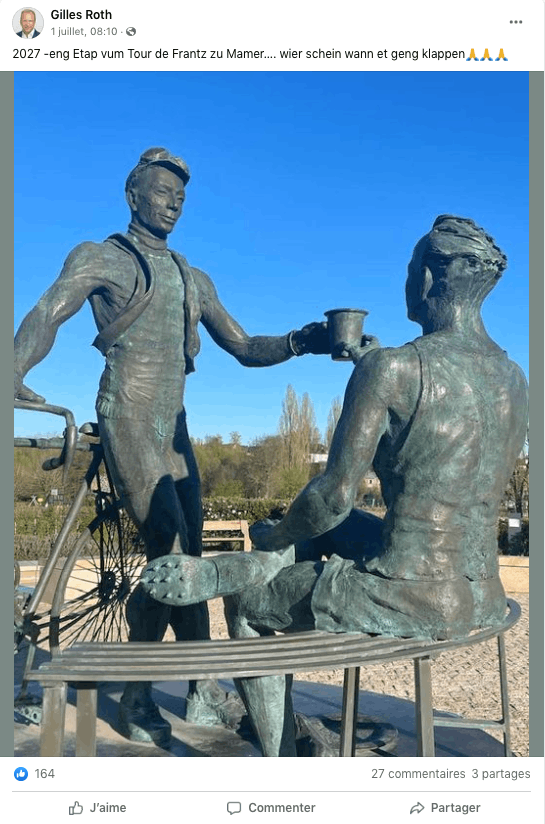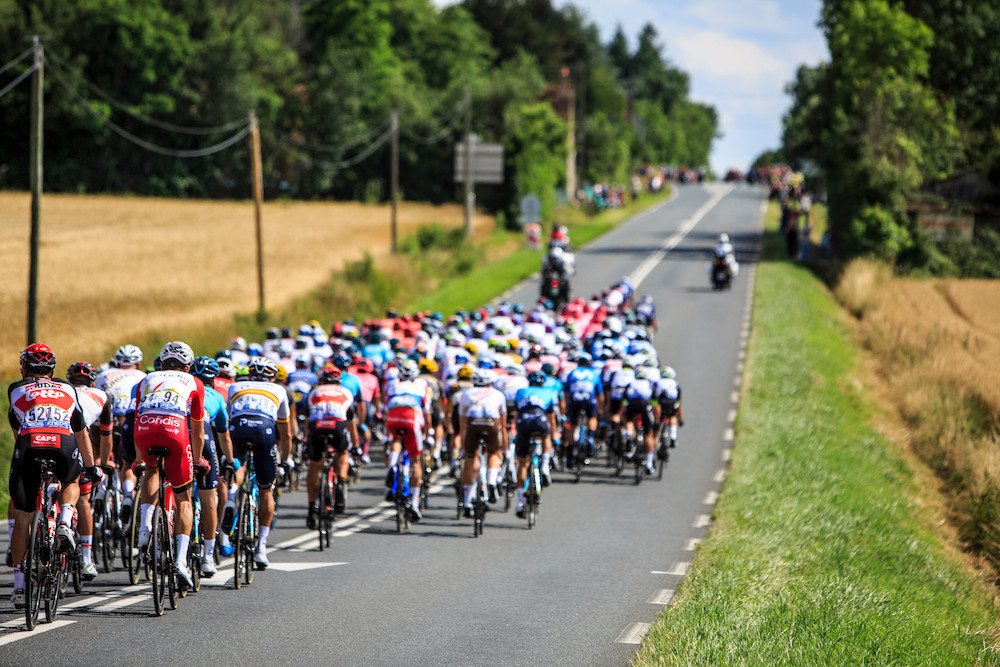At the beginning of June, ASO, the organising company of the Tour de France, told Delano's sister publication Paperjam that “no serious bid to host the Tour” in the years to come had been made from Luxembourg. This is likely to change soon, as (LSAP), the Minister for Sport, that he would not fail “to refer the matter to the government council in the near future to ask it to give him a mandate to approach the organisers of the Tour de France with a view to the Tour's next visit to Luxembourg”.
What the sports minister would like to do is organise “a grand departure, a finish or a stage departure”. A stage start could cost up to €80,000 and a finish up to €120,000 for a town in France. For a foreign town, the amounts are higher (”due to additional logistical costs”, according to ASO), although no scale has been set. The same applies to the organisation of a so-called grand départ, where the bill is in the millions of euros.
But the organisation is worth investing in and this goes beyond the purely sporting stakes. First of all, in terms of the media, the Tour de France is the biggest annual sporting event in the world, with billions of hours of television viewing. And it is broadcast in 190 countries around the world, of which some sixty now broadcast the stages in full.
An economically winning bet
During the grand départ of the 2021 edition, which took place in Brittany, a study was carried out by the local authorities. It revealed that the inaugural stage, which cost an estimated €2.3m of public money, attracted an additional 52,000 tourists and generated €4.35m of direct revenue for the local economy.
Many countries see the event as an interesting economic lever to boost their tourism and their economy. While Luxembourg has not really made use of it over the last 15 years (since 2007, only Mondorf has been a starting city in 2017), other countries geographically close to France have benefited much more. London, Monaco, Rotterdam, Brussels, Liege, Yorkshire, Düsseldorf, Utrecht or Copenhagen have all hosted a grand départ.
€6 in return for every euro invested for Sanem
A study commissioned by the sports ministry and carried out in 2017 on the Cyclo-cross World Championships organised that year in Belvaux, gives an overview of the economic scope of the event. It shows that the World Championships, which attracted around 30,000 people, generated direct expenditure of over €5.3m for the Luxembourg economy. The total impact, including indirect effects, was over €12.7m. Meanwhile the organisational cost was estimated at €2m. This is a good return on investment, of which Georges Engel--a cycling fan--is perfectly aware, as he was then mayor of Sanem (and therefore organiser of these World Championships).
A grand départ, hard to see in the short-term
The fact that the sports minister has expressed his wish to see the Tour de France return to Luxembourg does not mean that it will cross the border again soon. After declaring an official candidacy, a country can spend several years in the waiting room. However, the future Luxembourg bid will certainly attract attention, as the Tour is keen to seek new financial income abroad, while offering new horizons to its many viewers.
ASO has already confirmed that Bilbao (Spain) will organise the grand départ next year, while Florence (Italy) should have its own 12 months in the spotlight later on. In 2025, after three consecutive starts from abroad, it will certainly be time to start again from a French city. While Great Britain, through the intermediary of its finance minister, has already announced, last October, that it is a candidate for the 2026 grand départ.
It would therefore be simpler (and cheaper) to simply organise a stage event. And why not take advantage--as (CSV), the mayor of Mamer, suggested on his Facebook page--of the centenary (in 2027) of the first final victory of Nicolas Frantz, the second Luxembourg winner in the history of the Tour? His former home is located on the route d'Arlon (in Mamer). A place that could very well be suitable for a stage finish.

The commemorative sculpture of Nicolas Frantz and Josy Barthel, two illustrious figures in Luxembourg sport, which is displayed in front of the castle of Mamer. (screenshot/Facebook)
This story was first published in French on . It has been translated and edited for Delano.
